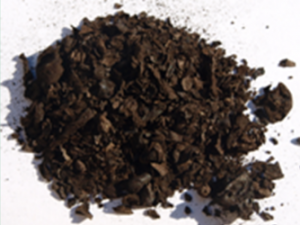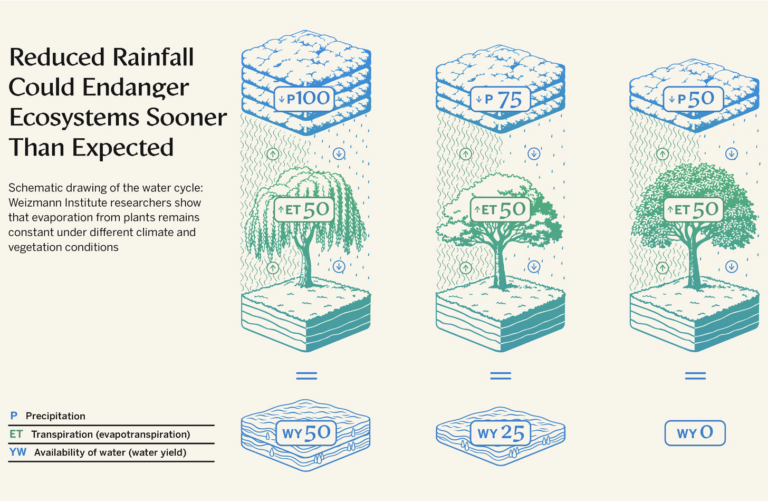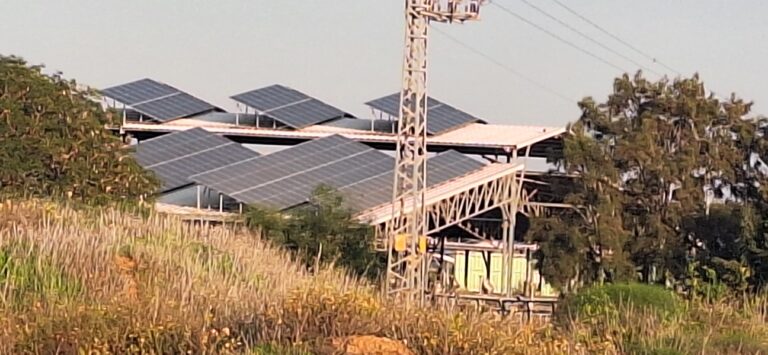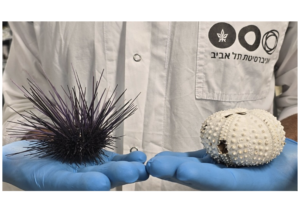BGU (Israel): Heating Raw Human Excrement Could Improve Sanitation and Provide a Reusable Energy Source

For the first time, a Ben-Gurion University pilot study demonstrated that raw human excrement can potentially be converted to a safe, reusable fuel and a nutrient rich fertilizer, thus addressing two major worldwide issues of sanitation and fuel for energy in advance of World Toilet Day, which will be marked on November 19.

According to the groundbreaking study published in the Journal of Cleaner Production, researchers at the Ben-Gurion University Zuckerberg Institute for Water Research have refined a process using hydrothermal carbonization (HTC) to heat solid human waste in a designated “pressure cooker” and convert excreta into hydrochar, a safe, reusable biomass fuel resembling charcoal.
The BGU researchers conducted similar research last year on turkey and other poultry excrement.
The development addresses two challenges prevalent in the developing world: sanitation and growing energy needs. While access to waste treatment worldwide has expanded significantly in recent years, approximately 2.3 billion people still lack basic sanitation services, according to the World Health Organization. This includes 892 million people – mostly in rural areas – who defecate in the open. The Bill and Melinda Gates Foundation sees sanitation as a major world health issue and has Reinvent the Toilet Challenge to address this problem. Pr Amit Gross
Pr Amit Gross
“Human excreta are considered hazardous due to their potential to transmit disease,” said Prof. Gross, who is the newly-appointed dean of the Zuckerberg Institute. While it is rich in organic matter, nutrients such as nitrogen, phosphorus and potassium, human waste also contains micro pollutants from pharmaceuticals, which can lead to environmental problems if not disposed or re-used properly.
Energy scarcity is also a challenge in these areas. Approximately two billion people worldwide use solid biomass, especially wood, which is converted into charcoal, and then used for cooking and heating. But these practices also leave a footprint on the environment – air pollution, greenhouse gas emissions, deforestation and soil erosion.
“By treating human waste properly, we can address both of these issues at once,” Prof. Gross added.
In the pilot and laboratory study, the researchers subjected the raw waste material through HTC to three temperatures (180, 210 and 240 °C) and reaction times (30, 60 and 120 min.).The solids become dehydrated, creating a substance known as hydrochar, a combustible solid, as well as a nutrient-rich aqueous (liquid) phase.Vivian Mau
The researchers, including doctoral candidates Reut Yahav Spitzer and
Vivian Mau, also said the reaction that creates the hydrochars sterilizes the waste material, so it becomes safe to handle. The “coals” can potentially be utilized for household heating and cooking, while the liquid byproduct, (the aqueous phase) can be used as liquid fertilizer.
The study was funded by the Rosenzweig-Coopersmith Foundation and the Israel Water Authority.
Publication in Journal of Cleaner Production
The Zuckerberg Institute for Water Research, Israel’s largest and leading water institute, conducts interdisciplinary, cutting-edge research and graduate education in water sciences, aimed at improving human well-being through technologies and policies for sustainable use of water resources. World-renowned Zuckerberg researchers are focused on desalination technologies and groundwater production, water quality and microbiology, as well as water resource economics and management. Zuckerberg graduate programs attract students from all corners of the world who are involved in research projects and collaborations in both developed and underdeveloped countries. Named for New York philanthropist Roy J. Zuckerberg, the Institute was founded in 2002 within the Jacob Blaustein Institutes for Desert Research at the Sede Boqer Campus of Ben-Gurion University of the Negev.
Ben-Gurion University of the Negev (BGU) is the fastest growing research university in Israel. With 20,000 students, 4,000 staff and faculty members, and three campuses in Beer-Sheva, Sede Boqer and Eilat, BGU is an agent of change, fulfilling the vision of David Ben-Gurion, Israel’s legendary first prime minister, who envisaged the future of Israel emerging from the Negev. The University is at the heart of Beer-Sheva’s transformation into the country’s cyber capital, where leading multinational corporations eagerly leverage BGU’s expertise to generate innovative R&D.
As it counts down to its 50th anniversary, BGU’s mission continues to be effecting change, locally, regionally and internationally. With faculties in Engineering Sciences; Health Sciences; Natural Sciences; Humanities and Social Sciences; Business and Management; and Desert Studies, BGU is a university with a conscience, active both on the frontiers of science and in the community. Over a third of our students participate in one of the world’s most developed community action programs. The University is a recognized national and global leader in many fields, actively encouraging multi-disciplinary collaborations with government and industry, and nurturing entrepreneurship and innovation in all its forms.






